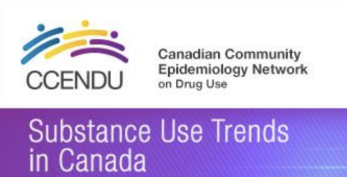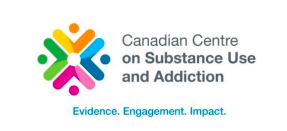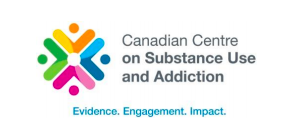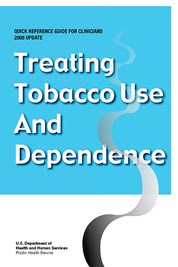Search
Treatment
Applying interventions designed to reduce and manage the symptoms of substance use disorders.
Alcohol Consumption and the Risk of Dementia
It is believed that the number of people living with dementia will triple by 2050. There is yet no cure for the disease therefore prevention is key. There are several modifiable lifestyle risk factors that are thought to be associated with...
Talking Pot with Youth
The Canadian Centre on Substance Use and Addiction (CCSA) has released a new resource for parents, teachers and other youth allies to help them prepare to have open, non-judgemental discussions with youths about cannabis. The Talking Pot...
Communication Toolkit to Promote Low Risk Alcohol Drinking
The Canadian Centre on Substance Use and Addiction has released the revised Low Risk Alcohol Drinking Guidelines Communication Toolkit to promote healthy attitude towards alcohol consumption. The guidelines, which are particularly geared...
How Cocaine Cues Get Planted in the Brain
Individuals suffering from substance use disorders develop strong associations between the drug’s stimulating effect and environmental cues that act as reminders of the experience, which can lead to relapse.
A recent study has proposed a...
Low Self-Esteem Connected to Greater Risk for Opioid Use
It has been suggested that individuals with low self-esteem are more likely to choose maladaptive coping behaviors, such as abuse of opioids, when faced with life stressors.
In a recent study conducted in New York, over 1000 adults, of...
The Use of Non-Prescribed Benzodiazepines and/or Amphetamines Predict Treatment Instability in Opioid Maintenance Treatment
INTRODUCTION: Opioid maintenance treatment (OMT) is a long-term intervention aiming at stability and reduced risk for patients. This project aims to estimate the 1-year drop-out rate of from OMT and to investigate factors associated with...
Ethanol Actions on the Ventral Tegmental Area: Novel Potential Targets on Reward Pathway Neurons
Emergency Department Screening and Interventions for Substance Use Disorders
Abstract
The emergency department (ED) has long been recognized as providing critical access to the health care system for many, yet only in the past few decades has the ED visit been recognized as an opportunity to identify and link...
SAMHSA’s 2017 National Survey on Drug Use and Health
The National Survey on Drug Use and Health (NSDUH) is the most comprehensive survey of substance use, substance use disorders, mental health and the receipt of treatment services for these disorders in the United States. NSDUH began in 1971...
Barriers to Addiction Treatment among Formerly Incarcerated Adults with Substance Use Disorders
Abstract
Background
Addiction treatment improves substance use and criminal recidivism outcomes among justice-involved individuals with substance use disorders, but is underutilized. Although information exists regarding barriers to...
Effectiveness Bank Matrix Cell: Reconciling the Interests of Community, Clients, and Families
Key studies on the roles of management in treatment’s impacts on crime and safeguarding the community, with a focus on criminal justice and child protection. Explore what research can offer managers who have to reconcile the interests of...
UAE to Train Specialist Drug Counsellors to Treat Rising Number of Abuse Cases
The UAE's National Rehabilitation Centre is opening a training center which will disseminate training programs, including the Universal Treatment Curriculum (UTC) for the Middle East region.
Quick Reference Guide: Treating Tobacco Use and Dependence
This clinician guide describes the development process, analysis and discussion of the available research while providing more complete information for health care decision-making.
New to Alcohol Use Research: Recommendations for Early Career Researchers
Informational Video on the Humphrey Fellowship Program
Effectiveness Bank Matrix Cell: Coercion Tests Therapeutic Skills
Key studies on the contribution of the practitioner to reducing crime and safeguarding the community. Commentary risks formulating a general rule: The trickier the situation, the more the worker matters. Implication is that therapeutic...
NIDA Notes: Impacts of Drugs on Neurotransmission
This articles discusses the central importance of studying drugs’ effects on neurotransmission and describes some of the most common experimental methods used in this research.
Drugs can alter the way people think, feel, and behave by...
Webinar: Authentic Self-Care for Addiction Professionals
Many of us are drawn to addiction work due to our history, family, and personal traits, such as compassion and empathy. While these experiences and strengths can be great assets, they can also be detrimental without care and awareness. In...
Federal Response to the Opioid Crisis in the US
Abstract
Purpose of Review: In light of the current crisis in opioid involved overdose deaths, the federal Department of Health and Human Services operating divisions are working together to implement a data-driven, research-based strategy...
Effectiveness Bank Hot Topic. Naltrexone Treatment of Offenders: Ethics and Evidence
Opinion is sharply divided on the ethics and effectiveness of pressuring opioid-dependent offenders to take the opiate-blocker naltrexone. Especially sharp is the controversy over long-acting products not approved for medical use in the UK...
Share the Knowledge: ISSUP members can post in the Knowledge Share – Sign in or become a member









